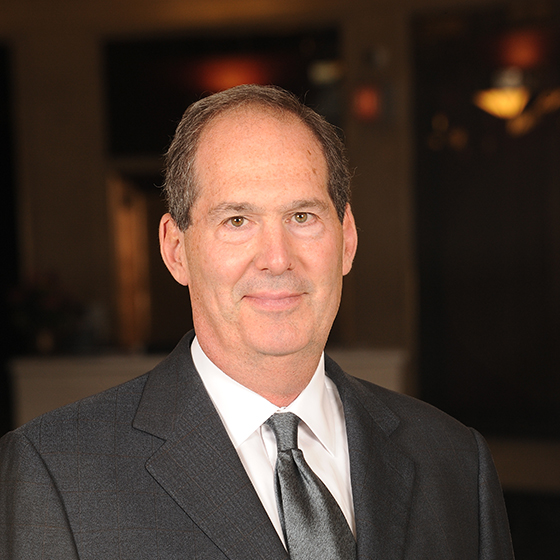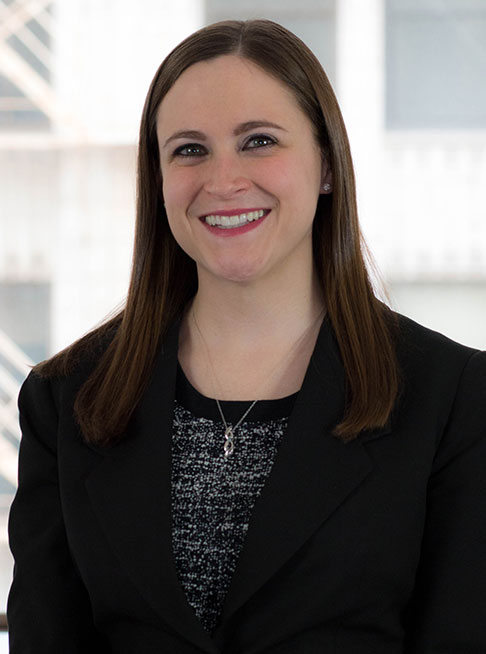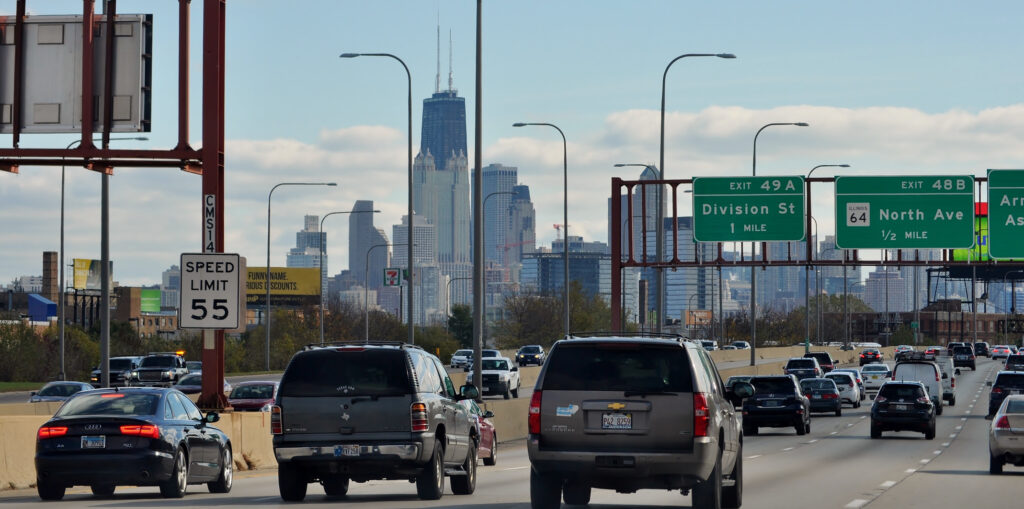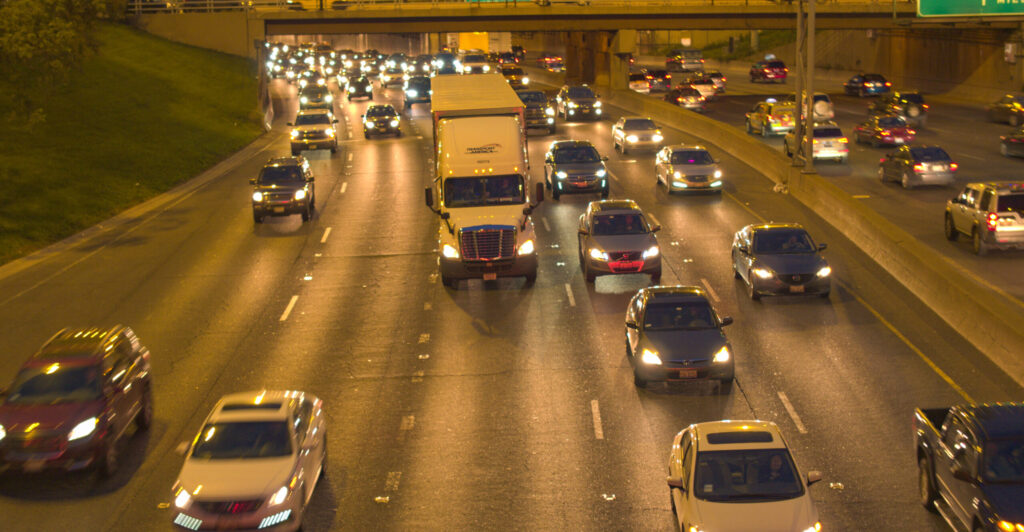Horwitz, Horwitz & Associates is Chicago’s leading motor vehicle accident law firm. While many lawyers avoid the courtroom, our automobile accident attorneys are confident and professional and prepare every injury case for civil trial. This approach and our reputation for achieving high-value settlements and verdicts make the “other side” sit up and listen – insurance companies know we mean business.
Our hard work pays off for clients in Chicago.
Many law firms act on behalf of the injured in auto accident cases. Every law firm varies in its approach; some are more effective in maximizing compensation than others. Horwitz, Horwitz & Associates has over thirty years of trial experience in Illinois courtrooms. Our Chicago personal injury attorneys understand what it takes to prove negligence and reach the best settlements possible for our clients.
Other points that set our legal practice apart include:
- Our Chicago car accident lawyers are responsible for historic or record-breaking victories, including the largest verdict in Illinois history for a personal injury claim.
- We handle all cases on a contingency fee basis. There are no out-of-pocket costs for our clients.
- We have significant experience handling car accident cases in Chicago and understand how to handle even the most complex cases.
- A Chicago car accident lawyer at our firm will always pursue the maximum compensation possible in every case.
Exploring every avenue for compensation
All aspects of the accident must be evaluated, including the accident scene and the condition of the vehicles, along with interviewing eyewitnesses. An evaluation of the long-term impact of the injuries in financial terms is necessary for determining the damages to pursue. The need to take immediate legal action cannot be overstated. We urge you to connect with our firm without delay so our Chicago car accident attorneys can get to work.
What are common car accident injuries in Chicago?
Vehicle accidents can cause severe injuries to any area of the body. Some of the most common injuries sustained include:
- Traumatic brain injury
- Fractures
- Lacerations
- Disfiguring injuries
- Neck injuries
- Back injuries
- Spinal cord injuries
- Internal injuries
- Crush injuries
- Emotional anguish
- Other catastrophic injuries
Chicago car accident statistics
Chicago is one of the largest and most congested cities in America. The Illinois Department of Transportation issues “Crash Facts,” revealing the staggering numbers of severe or fatal motor vehicle accidents. Some of the statistics include:
- 11,490,301 registered vehicles in Illinois
- 9,081,841 licensed drivers
- Crashes (1 recent year) 313,316
- Injuries (1 recent year) 92,675
- Fatalities (1 recent year) 998
With 858 total traffic crashes occurring per day, ten people injured, and three killed per day, car accidents occur at a staggering rate in Illinois. A large majority of car accidents occur in urban areas. The breakdown of types of accidents is as follows:
- Rear-end accidents: 90,955
- Turning-related collisions: 48,891
- Sideswipe same-direction crashes: 29,989
- Sideswipe opposite direction accidents: 3,597
- Angle collisions: 30,939
- Vehicle overturns: 4,019
- Collision with a fixed object: 33,853
There are many other types, but these are the most common accidents in which a driver or passenger is seriously or fatally injured. Cook County has the highest percentage of car accidents in the state, with 155,935 car accidents, 221 fatal crashes, and 29,414 fatal crashes in the most recently reported year.
When should I hire a Chicago car accident lawyer?
The optimal time to retain the services of our legal team is directly after the accident, but this is not always possible. A seriously injured person may spend weeks in the hospital, possibly unconscious, in pain, or undergoing treatment. This is the time for the close family to step in and connect and call a skilled Chicago car accident lawyer at our firm.
The evidence that supports a successful lawsuit must be gathered and preserved – a case becomes more complicated when vital evidence has been destroyed or lost. The bottom line is the sooner you connect with us, the better – for you.
Case results for Chicago car accident victims
$40 Million
Mike Wierzbicki and Michael Carter, attorneys at Horwitz, Horwitz & Associates, secured a settlement exceeding $40 million from a trucking company. The collision involved a semi-truck and a car, resulting in the car’s driver sustaining severe burn injuries. The settlement amount, which remains confidential, was obtained on behalf of the injured driver.
$16.4 Million
A car collision occurred due to the negligent driving of a “loaner car” from an auto dealership, leading to severe injuries and death of those involved. Despite the challenges, including a refusal by the dealership’s insurance carrier to settle, Michael Carter, attorney at Horwitz, Horwitz & Associates, remained committed to pursuing justice and compensation for his client’s injuries.
$5.5 Million
Successfully obtained $5.5 million in claims against a prominent U.S. automobile manufacturer. The details of the settlement and associated facts are confidential under a confidentiality agreement.
How long do I have to file a claim?
It may be difficult to consider the legal implications of a car crash, particularly if you suffered severe or life-threatening injuries. In Illinois, the statute of limitations restricts the timeframe under which a lawsuit can be filed. You have two years from the accident to file a lawsuit.
An insurance claim (typically the first step in seeking full compensatory damages) must be filed within a few weeks. A lawsuit must be filed within two years in civil court. In cases of wrongful death, the Illinois statute of limitations allows for one year from the time of death to file a lawsuit.
What kinds of damages may I be able to recover?
The value of your car accident injury claim hinges on the total amount of your damages. However, the amount you receive may not be exactly how much the accident cost you, for better or worse.
The following factors come into play when determining how much a car accident claim is worth:
- How the accident happened
- Any comparative negligence you bear
- The actions of the defendant leading to the accident
Considering the elements listed above, the compensation you receive may be less than or equal to the total amount of your damages or exceed the total amount of your economic damages.
Economic damages
To calculate how much your car accident injury claim is worth, assess your total economic damages resulting from the incident. Economic damages are generally the easiest to prove in any motor vehicle accident injury claim. Retain copies of all:
- Repair invoices
- Medical bills
- Receipts for anything related to your car accident after the incident
Medical treatment
If a negligent defendant caused a car accident with your vehicle and is responsible for your injuries, the defendant is liable for any medical treatment you require. Your medical expenses can include hospital bills, ambulance fees, and all other costs related to your medical care, but only those resulting from the injuries from your accident.
Lost income
An auto accident may cause a severe injury that prevents you from working and driving for an extended time. You may develop permanent damage that prevents you from working in the future. You may secure compensation for lost future earning capacity if your injuries prevent you from resuming work or working at all after your injury.
Property damage
The defendant is liable for the damage to your vehicle, so repair or replacement costs will likely form a sizable portion of your overall economic damages.
An experienced Chicago car accident lawyer can help you gather the materials necessary to prove the extent of your economic damages (i.e., medical bills). Still, you could be eligible for further compensation.
Non-economic damages (Pain & suffering)
The court will also award pain and suffering compensation to a plaintiff who suffered physical pain, emotional distress, and mental anguish due to a defendant’s actions. This varies based on:
- The severity of the plaintiff’s injuries
- The manifestation of any permanent disability
- The plaintiff’s quality of life following his or her recovery
More damaging injuries and those that cause permanent damage generally lead to the most pain and suffering compensation.
A plaintiff’s attorney may call on expert witnesses to help justify a plaintiff’s claimed damages. For example, if a plaintiff developed a permanent disability due to the defendant’s negligent actions, an expert witness can provide further professional insight into the matter. With their testimony, they can show how the plaintiff’s disability will affect their earning capacity and physical health in the years to come. Expert witness testimony bolsters a plaintiff’s credibility.
Punitive damages
In rare cases, a jury will award a plaintiff punitive damages when a defendant’s behavior is found to be especially harmful. This includes performing criminal activities such as driving under the influence or fleeing from the police during the time of the accident.
Punitive damages exist to punish a defendant’s wrongdoing, and the amount awarded depends on the severity of the defendant’s behavior and financial status. Wealthy defendants face much higher punitive damages than defendants with minimal assets.
All car accident injury claim plaintiffs should remember that Illinois state law upholds a comparative negligence statute. This means a plaintiff’s recovery could diminish if he or she bears any partial liability for causing the accident. In Illinois, a plaintiff can still recover compensation if he or she is less than 50% at fault for causing the accident. However, the plaintiff will lose a percentage of the case award equal to his or her percentage of fault.
What happens if I’m partially to blame for the crash? Can I still recover compensation?
Negligence must be established to file a successful claim or lawsuit. Every case is different. Proving negligence may be as simple as a criminal conviction for DUI or much more complex.
An insurance company lawyer likely represents the at-fault driver. It is uncommon for their defense lawyers to attempt to reduce the compensation paid.
Under the Illinois Compiled Statutes, the concept of “contributory fault” affects every car crash and involves investigating the actions of both drivers to determine liability.
While one driver may be at fault, it is possible that the other driver may have made some driving error as well. If this is the case, the amount paid will be reduced by the percentage of fault. , if one driver was 80 percent at fault and the other 20 percent at fault, the compensation would be reduced by 20 percent.
What’s the process for a car accident lawsuit in Chicago?
When a case proceeds to civil court, it has several phases:
Case Preparation
This process involves sharing information about the case, such as medical records, accident scene investigation information, witnesses who observed the auto accident, and other data.
Negotiations
An effort to resolve the case out of court will be required. This is part of the process in which a settlement agreement may be reached.
The trial
The rules of evidence govern all trials. The judge makes decisions about what evidence can be presented. Witnesses are called to give evidence. In car accident cases, this may include eyewitnesses to the accident, medical experts, financial experts, and accident investigators, among others. Each side has the opportunity to question these experts.
Your experienced trial lawyers, Horwitz, Horwitz & Associates, have extensive experience in case development and presentation. Our record of achieving high-value settlements and jury awards has led to our reputation as Chicago’s leading car accident lawyers.
Jury deliberation
After both sides’ attorneys have finished presenting their cases, the trial is concluded. The jury must then decide whether the defendant (the at-fault party) was responsible and how much compensation should be paid to the plaintiff (the injured person).
In a civil trial, the jury is given specific instructions to follow in coming to a verdict and compensation. The damages must include compensation for the emotional disturbance accompanying the injuries. We do not compromise in protecting the legal right of our clients to recover fair and total compensation, whether at trial or in settlement negotiations.
How long does the car accident lawsuit process take in Chicago?
The process of seeking justice through the civil court system requires time. While drivers in Illinois are required to carry car insurance, some types of injuries result in damages that exceed the limits on a driver’s auto insurance policy. Predicting the time needed to resolve your case requires an in-depth evaluation of the facts.
Many car accident cases can be settled outside of court – but even that process can be lengthy, particularly in cases of severe or fatal injuries. We urge you to call our Chicago car accident lawyers at once so we can work together to review the details and establish a realistic timeline for your lawsuit. You can be confident our litigators will be pushing forward with your case and will not accept efforts to delay from an insurance company.
Hurt in a crash that wasn’t your fault? Our Chicago car accident lawyers can help.
Horwitz, Horwitz & Associates is committed to pursuing the maximum damages in negotiations or at trial. Whether a driver, company, or defective auto part was responsible for your crash, we can help assign liability. Horwitz, Horwitz & Associates will work hard to secure the maximum compensation you deserve. Call us today to schedule a free case consultation.
Related Articles
- 2023 Illinois Car Accident Statistics
- Common types of car accidents in Chicago
- What happens if you don’t report an accident to insurance?
For additional information, visit our Motor Vehicle FAQs.











